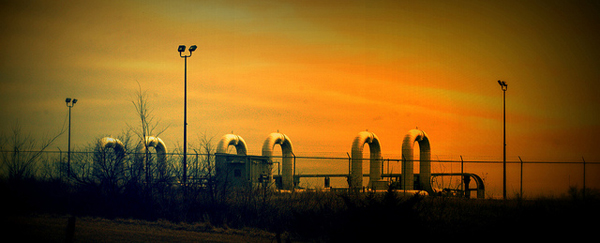Seven Canadian and one American expert on resources, economics, and maintaining a livable climate have called in the prestigious science journal Nature for a moratorium on oilsands developments and transportation infrastructure.
In their comment in the June 26 edition of Nature, "Consider the global impact of oil pipelines," the authors call for "a more coherent approach" to green-lighting unconventional energy development in Canada and the United States, "one that evaluates all oilsands projects in the context of broader, integrated energy and climate strategies."
The group of authors was led by Simon Fraser University biologist Wendy J. Palen, and includes environmental economist Mark Jaccard, from the same Burnaby campus, as well as such boldface academic names as Thomas Homer-Dixon (Basillie School of International Affairs, U Waterloo) and U. of Calgary geographer Joseph Árvai.
Currently, they write, "both Canada and the United States treat oilsands production, transportation, climate and environmental policies as separate issues, assessing each new proposal in isolation."
As a result, each new oilsands mine or pipeline "is presented as an ultimatum -- a binary choice between project approval and lost economic opportunity. This approach artificially restricts discussion to only a fraction of the consequences of oil development."
In Canada, this has allowed greenhouse gas emissions from oilsands production to balloon -- with a projected tripling between 2005 and 2020 -- while the country is on track to miss its (revised) emission-reduction targets for the end of the decade by 122 million tons.
Meanwhile, "The cumulative effects of new mines, refineries, ports, pipelines, railways and a fleet of transoceanic supertankers are often at odds with provincial, state, federal or international laws protecting clean water, indigenous rights, biodiversity and commitments to control carbon emissions."
Closing the ideological gulf
The authors lament that the scope of formal processes for reviewing oil-related infrastructure projects has been steadily narrowed. Since 2010, they note, public hearings in Canada "have formally excluded testimony by experts or the public about carbon emission and climate."
As well as an immediate halt to new oilsands developments and related pipeline construction, the authors urge that Canada and the U.S. jointly develop a two-step strategy to allow energy development to proceed -- if it is also in step with environmental limits and other national commitments.
First, the two countries should legislate a formal acknowledgement of the climate linkages from oilsands development (the U.S. has its own deposits under development in the Mountain West), and establish either a carbon tax or cap-and-trade mechanism to ensure that the oil industry absorbs "the full social costs of carbon combustion."
Secondly, approvals for future oilsands or oil pipeline projects should weigh a much wider range of downstream consequences and alternative ways to address the perceived need for more production. "Trade-offs," need to be considered, the authors say, "among conflicted objectives such as energy and economic development, environmental protection, human health and social justice." Options should include alternative energy sources -- as well as just saying ‘no.’
Advances in what they call "decision science," the eight academics say, offer helpful "pathways" to deal with "multiple drivers, linked effects and nested scales of cause and effect."
The bigger challenge may be what they acknowledge is an "ideological gulf" on climate policy between Canada and the U.S. But "that divide," they also predict, "will not persist indefinitely." ![]()
Read more: Energy, Environment
















Tyee Commenting Guidelines
Comments that violate guidelines risk being deleted, and violations may result in a temporary or permanent user ban. Maintain the spirit of good conversation to stay in the discussion.
*Please note The Tyee is not a forum for spreading misinformation about COVID-19, denying its existence or minimizing its risk to public health.
Do:
Do not: